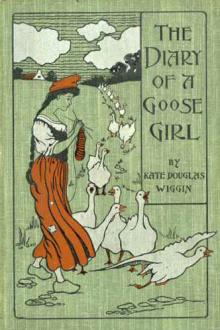The Arabian Nights, - [red scrolls of magic .TXT] 📗

- Author: -
- Performer: -
Book online «The Arabian Nights, - [red scrolls of magic .TXT] 📗». Author -
When Morgiana had left off speaking, Ali Baba was so sensible of the great service she had done him, that he said to her: "I will not die without rewarding you as you deserve; I owe my life to you, and for the first token of my acknowledgment, give you your liberty from this moment, till I can complete your recompense as I intend. I am persuaded with you, that the forty robbers have laid snares for my destruction. God, by your means, has delivered me from them as yet, and I hope will continue to preserve me from their wicked designs, and deliver the world from their persecution. All that we have to do is to bury the bodies of these pests of mankind immediately, and with all the secrecy imaginable, that nobody may suspect what is become of them. But that labour Abdoollah and I will undertake."
Ali Baba's garden was very long, and shaded at the farther end by a great number of large trees. Under these he and the slave dug a trench, long and wide enough to hold all the robbers. Afterward they lifted the bodies out of the jars, took away their weapons, carried them to the end of the garden, laid them in the trench, and levelled the ground again. When this was done, Ali Baba hid the jars and weapons; and as he had no occasion for the mules, he sent them at different times to be sold in the market by his slave.
While Ali Baba took these measures to prevent the public from knowing how he came by his riches in so short a time, the captain of the forty robbers returned to the forest with inconceivable mortification; and in his confusion at his ill success, so contrary to what he had promised himself, entered the cave, not being able, all the way from the town, to come to any resolution how to revenge himself of Ali Baba.
The loneliness of the gloomy cavern became frightful to him. "Where are you, my brave lads," cried he, "old companions of my watchings, inroads, and labour? What can I do without you? Did I collect you only to lose you by so base a fate, and so unworthy of your courage! Had you died with your sabres in your hands, like brave men, my regret had been less! When shall I enlist so gallant a troop again? And if I could, can I undertake it without exposing so much gold and treasure to him who hath already enriched himself out of it? I cannot, I ought not to think of it, before I have taken away his life. I will undertake that alone, which I could not accomplish with your powerful assistance; and when I have taken measures to secure this treasure from being pillaged, I will provide for it new masters and successors after me, who shall preserve and augment it to all posterity." This resolution being taken, he was not at a loss how to execute his purpose; but full of hopes, slept all that night very quietly.
When he awoke early next morning, he dressed himself, agreeably to the project he had formed, went to the town, and took a lodging in a khan. As he expected what had happened at Ali Baba's might make a great noise, he asked his host what news there was in the city? Upon which the innkeeper told him a great many circumstances, which did not concern him in the least. He judged by this, that the reason why Ali Baba kept his affairs so secret, was for fear people should know where the treasure lay; and because he knew his life would be sought on account of it. This urged him the more to neglect nothing to rid himself of so cautious an enemy.
The captain now assumed the character of a merchant, and conveyed gradually a great many sorts of rich stuffs and fine linen to his lodging from the cavern, but with all the necessary precautions imaginable to conceal the place whence he brought them. In order to dispose of the merchandise, when he had amassed them together, he took a warehouse, which happened to be opposite to Cassim's, which Ali Baba's son had occupied since the death of his uncle.
He took the name of Khaujeh Houssain, and as a newcomer, was, according to custom, extremely civil and complaisant to all the merchants his neighbours. Ali Baba's son was from his vicinity one of the first to converse with Khaujeh Houssain, who strove to cultivate his friendship more particularly when, two or three days after he was settled, he recognised Ali Baba, who came to see his son, and stopped to talk with him as he was accustomed to do. When he was gone, the impostor learnt from his son who he was. He increased his assiduities, caressed him in the most engaging manner, made him some small presents, and often asked him to dine and sup with him.
Ali Baba's son did not choose to lie under such obligation to Khaujeh Houssain, without making the like return; but was so much straitened for want of room in his house, that he could not entertain him so well as he wished; he therefore acquainted his father Ali Baba with his intention, and told him that it did not look well for him to receive such favours from Khaujeh Houssain without inviting him in return.
Ali Baba, with great pleasure, took the treat upon himself. "Son," said he, "to-morrow being Friday, which is a day that the shops of such great merchants as Khaujeh Houssain and yourself are shut, get him to take a walk with you, and as you come back, pass by my door and call in. It will look better to have it happen accidentally, than if you gave him a formal invitation. I will go and order Morgiana to provide a supper."
The next day Ali Baba's son and Khaujeh Houssain met by appointment, took their walk, and as they returned, Ali Baba's son led Khaujeh Houssain through the street where his father lived; and when they came to the house, stopped and knocked at the door. "This, sir," said he, "is my father's house; who, from the account I have given him of your friendship, charged me to procure him the honour of your acquaintance."
Though it was the sole aim of Khaujeh Houssain to introduce himself into Ali Baba's house, that he might kill him without hazarding his own life or making any noise; yet he excused himself, and offered to take his leave. But a slave having opened the door, Ali Baba's son took him obligingly by the hand, and in a manner forced him in.
Ali Baba received Khaujeh Houssain with a smiling countenance, and in the most obliging manner. He thanked him for all the favours he had done his son; adding withal, the obligation was the greater, as he was a young man not much acquainted with the world.
Khaujeh Houssain returned the compliment, by assuring Ali Baba, that though his son might not have acquired the experience of older men, he had good sense equal to the knowledge of many others. After a little more conversation on different subjects, he offered again to take his leave; when Ali Baba, stopping him, said: "Where are you going, sir, in so much haste? I beg you would do me the honour to sup with me, though what I have to give you is not worth your acceptance; but such as it is, I hope you will accept it as heartily as I give it." "Sir," replied Khaujeh Houssain, "I am thoroughly persuaded of your good will; and if I ask the favour of you not to take it ill that I do not accept your obliging invitation, I beg of you to believe that it does not proceed from any slight or intention to affront, but from a reason which you would approve if you knew it.
"And what may that reason be, sir," replied Ali Baba, "if I may be so bold as to ask you?" "It is," answered Khaujeh Houssain, "that I can eat no victuals that have any salt in them; therefore judge how I should feel at your table." "If that is the only reason," said Ali Baba, "it ought not to deprive me of the honour of your company at supper; for, in the first place, there is no salt ever put into my bread, and as to the meat we shall have to-night, I promise you there shall be none in that. Therefore you must do me the favour to stay. I will return immediately."
Ali Baba went into the kitchen, and ordered Morgiana to put no salt to the meat that was to be dressed that night; and to make quickly two or three ragouts besides what he had ordered, but be sure to put no salt in them.
Morgiana, who was always ready to obey her master, could not help seeming somewhat dissatisfied at his strange order. "Who is this difficult man," said she, "who eats no salt with his meat? Your supper will be spoiled, if I keep it back so long." "Do not be angry, Morgiana," replied Ali Baba; "he is an honest man; therefore do as I bid you."
Morgiana obeyed, though with no little reluctance, and had a curiosity to see this man who ate no salt. To this end, when she had finished what she had to do in the kitchen, she helped Abdoollah to carry up the dishes; and looking at Khaujeh Houssain, knew him at first sight, notwithstanding his disguise, to be the captain of the robbers, and examining him very carefully, perceived that he had a dagger under his garment. "I am not in the least amazed," said she to herself, "that this wicked wretch, who is my master's greatest enemy, would eat no salt with him, since he intends to assassinate him; but I will prevent him."
Morgiana, while they were eating, made the necessary preparations for executing one of the boldest acts ever meditated, and had just determined, when Abdoollah came for the dessert of fruit, which she carried up, and as soon as he had taken the meat away, set upon the table; after that, she placed three glasses by Ali Baba, and going out, took Abdoollah with her to sup, and to give Ali Baba the more liberty of conversation with his guest.
Khaujeh Houssain, or rather the captain of the robbers, thought he had now a favourable opportunity of being revenged on Ali Baba. "I will," said he to himself, "make the father and son both drunk: the son, whose life I intend to spare, will not be able to prevent my stabbing his father to the heart; and while the slaves are at supper, or asleep in the kitchen, I can make my escape over the gardens as before."
Instead of going to supper, Morgiana, who had penetrated the intentions





Comments (0)